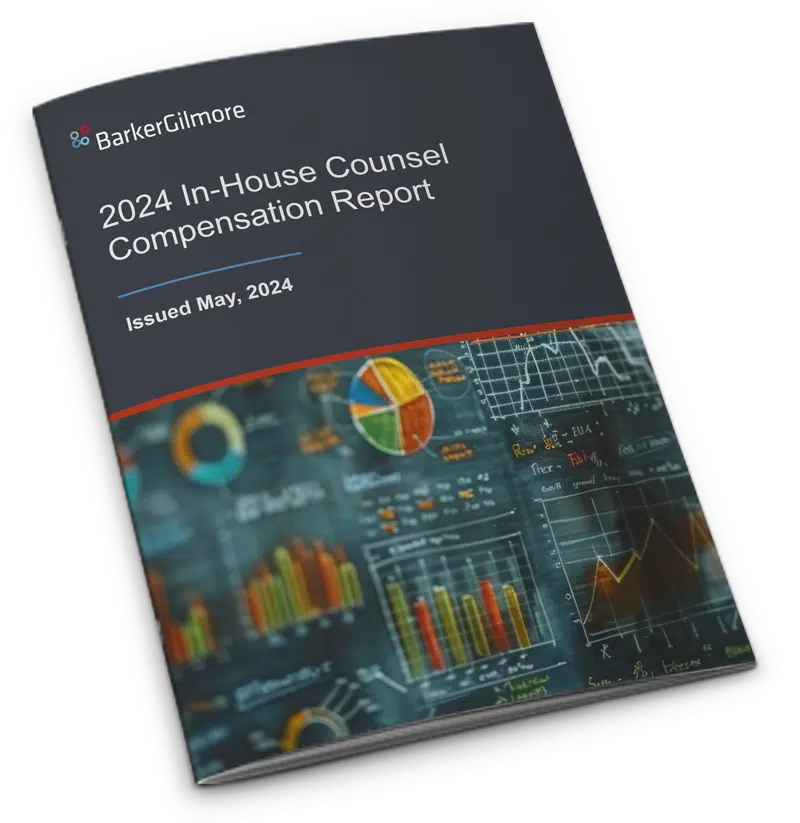Strategic Advisor and Coach Michelle Banks, Managing Partner John Gilmore, and Carolyn Herzog discussed differences between public and private company GC roles and what CEOs and boards look for in a candidate.
Consider the role of a public company General Counsel.
Michelle served at two large public companies and one smaller private company; John places general counsel and their successors at both public and private companies; and Carolyn currently serves at a large private company and previously at a large public company. Based on their first-hand comparisons, they advise you to consider that:
- The public company GC role is a tough job and involves a lot of public pressure. You must go in with your eyes wide open.
- Compensation and prestige are among the many positives associated with this job.
- The role of the public company GC is impacted by many factors:
- SEC and Stock Exchange rules
- Shareholder activism
- Media scrutiny
- Annual meeting requirements
- Proxy advisor reports
- External audits
- Board committee and independent director requirements
- Class action targeting
- Environmental, Social, and Governance (ESG)
- Ethics requirements
Do you have the core competencies that CEOs and Boards look for?
Whether you want to become the general counsel of a public or a private company, it’s not an easy task. One role is not better than the other; they are just very different. However, the core competencies that are required for both are basically the same. According to John Gilmore, the assessment component of BarkerGilmore’s proprietary CustomFitSM process focuses on six qualities that CEOs and boards seek in GC candidates, whether for a public or private company position:
- Emotional intelligence – The successful candidate will build effective relationships, react well in stressful situations, and become a strategic advisor.
- Judgment – A GC must serve as the moral compass of the company and show excellent judgment both inside and outside the company.
- Leadership – All GCs must be able to mentor, hire, train, and retain talent.
- Risk tolerance – The GC must align with the risk tolerance of the executive team.
- Legal and business acumen – Successful GCs understand the business and the financials and make sound calls regarding the direction and growth of the business, keeping the legal landscape in view.
- Cultural fit – Any new GC must have the right chemistry with the executive team and the overall company culture.
Board experience is essential.
When searching for a public company candidate, boards place heavy emphasis on a person’s experience with corporate governance. They want to know that the person isn’t learning on the job, but has first-hand experience working with a board, and knows the difference between good governance and bad governance. Since public company experience is critically important, it’s not always easy for a private company GC to automatically move into a public company situation. Put yourself in a position to gain as much board exposure as possible and keep in mind that you can achieve that by serving as Corporate Secretary, Assistant Corporate Secretary, or Chief Compliance Officer.
How to handle the interview.
There is no magic trick to interviewing at a public company. However, due to the emphasis on board involvement, John Gilmore advises you to be prepared to give examples of how you have effectively interfaced with a board. Since you will be expected to be a strategic advisor and business partner, act like one. Don’t talk too much during the interview. Be humble. Do your homework so you understand the business and can show your passion for it. Ask the right questions, actively listen to the answers, and respond with why you are a good cultural fit by referring to what others say about you and what you have to offer. Effectively use third-party endorsements to take the emphasis off you talking about yourself.
Review the compensation differential.
Public company GCs are compensated on a different scale. For example, BarkerGilmore’s annual In-House Counsel Compensation Report indicates that:
- In companies larger than $5 billion, GC compensation in a public company can be 35% higher than in a private company.
- In companies under $500 million, the differential can be as much as 60% higher for the public company GC.
- The equity awards in a public company can be significant and will drive the compensation differential.
BarkerGilmore also partners with Equilar to publish the General Counsel Pay Trends report each year, which details specific cash and total compensation amounts for GCs at public companies.
Understand a public versus private company environment.
General Counsel Carolyn Herzog (Arm, Limited) explains that a major difference between public and private environments is the cadence of the business. In a public company, there is a quarterly cadence. Rigor and resources are applied to that cadence, culminating in various reporting requirements. In a private company, you’re still quarterly driven, but there’s less of a sense of data-driven reporting and even some of the roles that exist in a public company don’t exist in private companies, so the climate feels very different. Private companies are intrinsically allowed more freedom to operate and be innovative, having the opportunity to invest and do things within the business without stakeholder scrutiny or required reporting. In a public company, the laws are clear, and the SEC regulations are even more clear.
Private company GCs can prepare to become a public company general counsel.
Whether you are a private company GC or serve on the legal team and want to be a public company GC, there are things that you can do to get yourself ready for the position.
Serve your customers and serve your stakeholders by doing things like keeping good books and records and having meaningful business conversations. Act like you are a part of a public company before you actually become part of one. Overall, make sure that you and the legal department are an essential part of, and provide measurable value to, the business.
John Gilmore, Michelle Banks, and our team of professionals are happy to help accelerate the initiatives that you’re already pursuing or to supplement your current strategic thinking to help you realize your vision. Please reach out if you or your organization may benefit from our recruiting, coaching, or advising services.
Connect with a legal recruiting advisor
* indicates required fields






